A Thousand Worlds Within River City Bangkok
Inside River City Bangkok, a thousand worlds emerge through art, antiques, architecture, ...
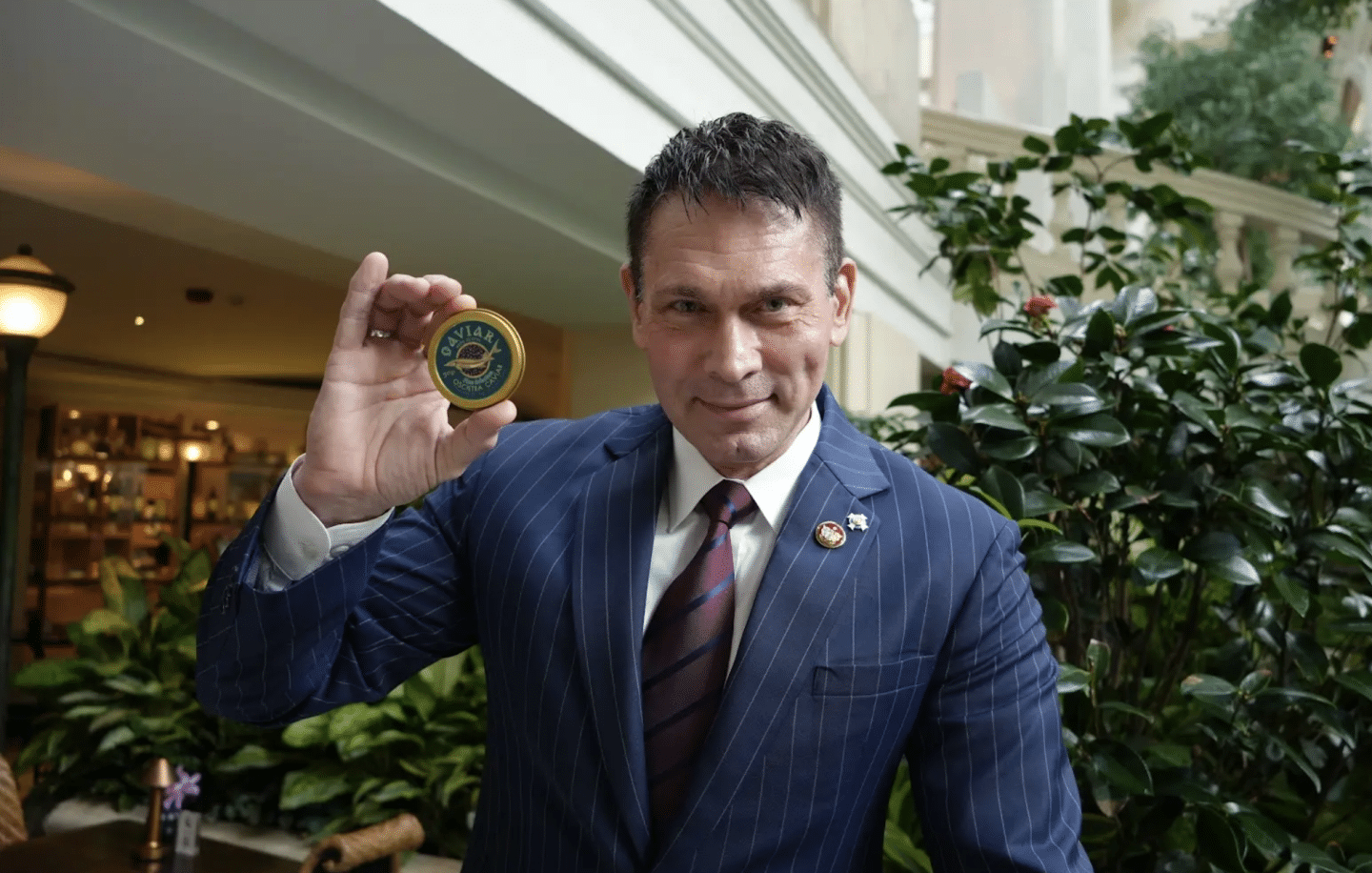
This week we delve deeper into the business mindset and explore what it takes to build a successful enterprise in conversation with Alexey Tyutin, managing director at Thai Sturgeon Farm.
Through the company Tyutin and his Thai business partner, Noppadon Khamsai, are bringing a traditional gastronomic ingredient into contemporary Thai cuisine, showcasing its potential in local dishes while also introducing it to international markets.
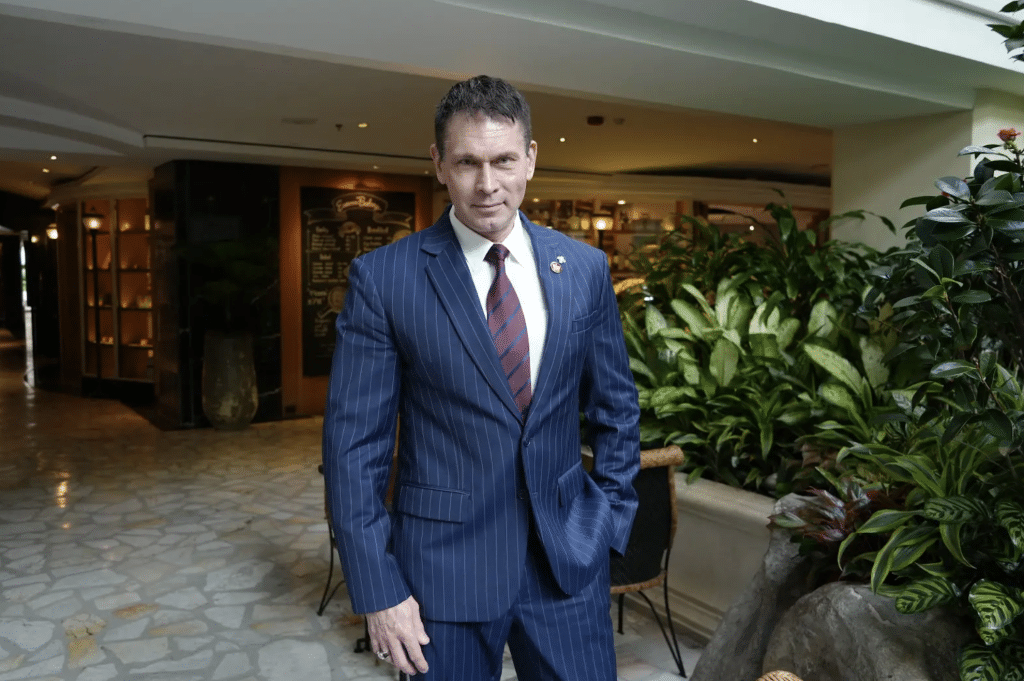
Tyutin, originally from Russia, began his career in Thailand in real estate in 2004. With the real estate boom and growing interest from Russian buyers in acquiring property on Koh Samui, he became an entrepreneur and founded ThaiProperty Ltd., catering to Russian investors and second-home seekers.
After 2008–2009, the market slowed dramatically. “We sold out our condominium project, and then sales just dropped,” he recalls. That prompted him to look for other business opportunities in Thailand.
“I was thinking about what I could do here in Bangkok, but there weren’t that many opportunities. If you want to do something scientific or industrial, it requires a huge investment, like building a factory or similar. Most people were doing businesses that didn’t interest me, like restaurants or bars, as it was just not my area.
Then I spoke to a friend of mine who had built a sturgeon farm in Latvia. It’s a pretty cold place, actually. I asked him how it worked and how he managed it. He explained that they used a special recirculating system, which uses very little water. Once water is poured in, almost none is wasted. I asked him if it would be possible to do something similar in Thailand and he said, “Why not?”
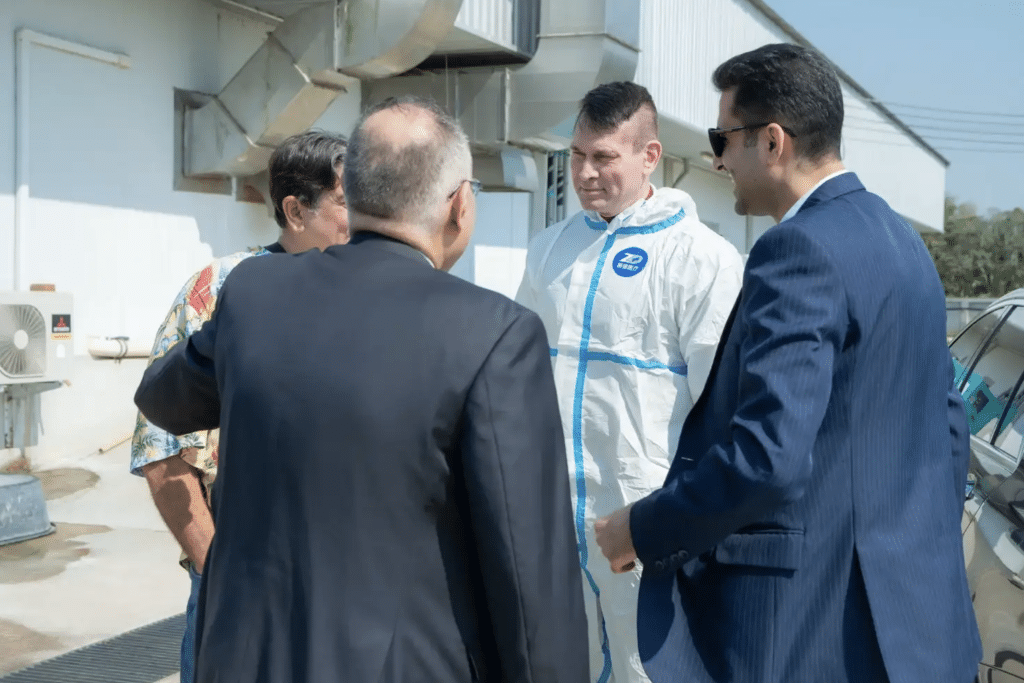
In 2011 Tyutin and his Thai partner established Thai Sturgeon Farm Co., Ltd. in Hua Hin, Prachuab Khiri Khan. The project aimed to cultivate hybrid sturgeon using a recirculating aquaculture system (RAS), producing high-quality meat, caviar and other value-added products for both local and global markets. However, the journey had only just begun, as it took several years to fully complete the farm and bring it into operation.
“I spent two years studying the project. I had no prior knowledge about sturgeon. I have three university degrees but none related to fish. I travelled to Russia and China to study existing farms and see how they operate. From 2011 to 2013 we began designing the farm, revising the plans multiple times. The well water was 31°C but for sturgeon it needed to be around 10 degrees cooler. For safety we settled on 21°C. We designed a chilling system, improved ventilation and increased insulation.
It took about a year to prepare all the documentation, find contractors, and source suppliers. In 2015 the entire farm was constructed, and it was finally completed at the beginning of 2016.”
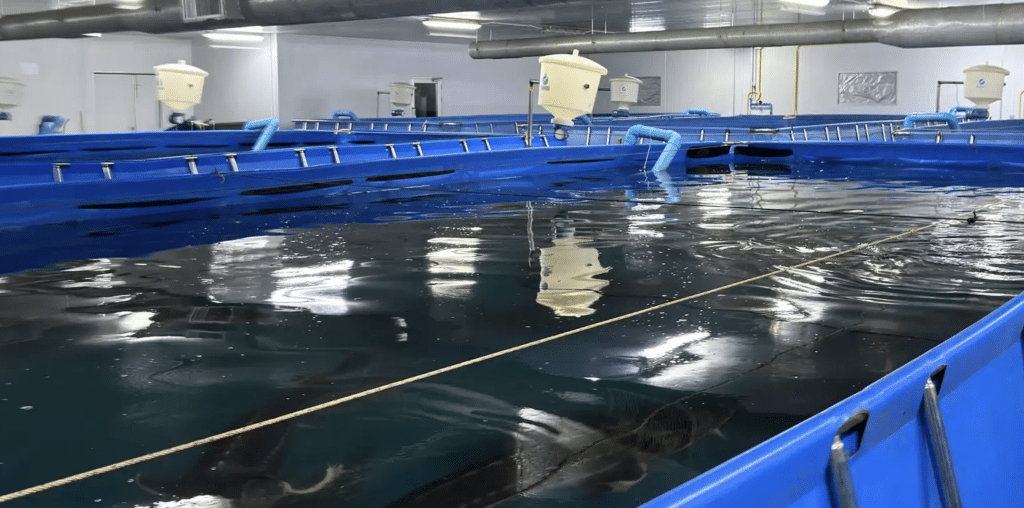
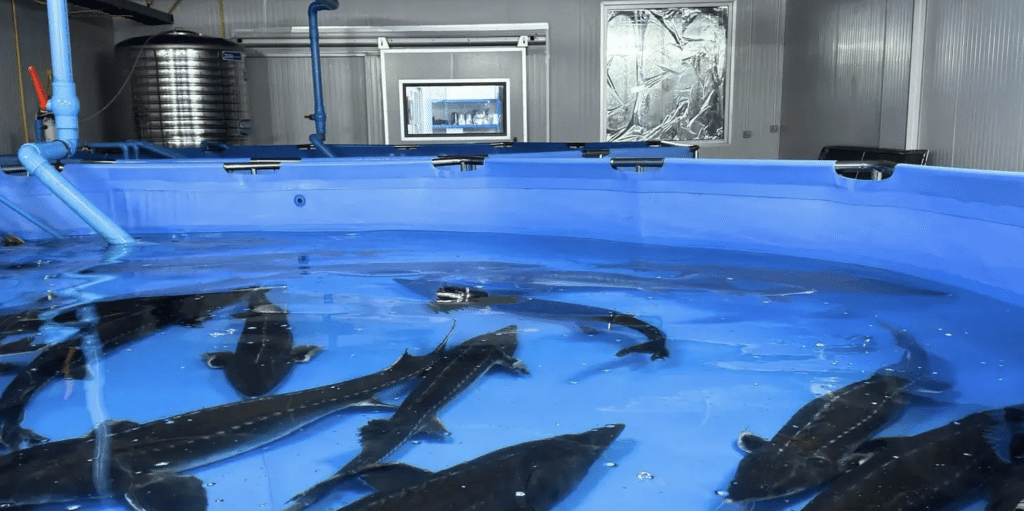
In June 2016, Tyutin brought in sturgeon fry from China. This was the best option, as it was a direct flight. Importing from Russia wasn’t practical as from Chengdu in China, the flight was only about three to three and a half hours.
The sturgeon family is quite large, and in China they were breeding hybrids. The mother is a Kaluga, a river Beluga and a huge fish, while the father is a smaller Amur sturgeon. The hybrid offspring grow to be quite large, and the caviar yield is impressive. He selected bigger fry for productivity, allowing for a yield of up to 17% of the fish’s weight. For example, a 50-kilogram fish could produce up to 8 kilograms of caviar per cycle.
“We chose Hua Hin for two main reasons. First, the infrastructure was good — nice roads, electricity, and reasonably priced land. The second reason was promotional appeal. ”
Hua Hin is a coastal town with beautiful sea landscapes, making it a fitting environment for a fish farm. Its popularity as a holiday destination also meant the farm would be easily accessible and visible to visitors. This combination of a sea-adjacent location and tourist footfall provided the perfect opportunity to showcase sturgeon farming and share their story from the very beginning with hotels, restaurants and visitors alike.
What sets this farm apart is Tyutin’s commitment to sustainability at its core.
“The caviar is extracted while the sturgeon is still alive. The room is kept at a low temperature to keep the fish calm and inactive. Trained staff hold the fish while a professional extracts the caviar using specialised metal tools. The eggs are massaged out of the fish following strict sanitary procedures.
Once extracted the caviar undergoes processing. It is cleaned thoroughly with sterile water multiple times and subjected to a brief high-temperature treatment to eliminate any bacteria, as it is no longer protected by the fish’s body. Finally the eggs are lightly salted with about 3% Thai salt (roughly 30 grams per kilogram) and packaged, preserving the delicate flavour and texture.”
This method makes the farm sustainable because the sturgeon are not killed in the process. Tyutin ensures that each fish can continue to grow and produce roe in future cycles, allowing the farm to maintain production without depleting its stock. This approach preserves the species and reduces environmental impact.
The caviar from Thai Sturgeon Farm is lower in fat compared to traditional varieties. After 18 months of experimentation, the team developed a product with a milder initial taste, while maintaining the same rich aftertaste as caviar from killed fish. For the Thai market, salt content is reduced to 3% to suit local preferences. By comparison caviar in Europe typically contains 3.5–3.8% salt, while in the United States it can reach 4.5%.
“I’ve lived in Thailand a long time, so I know Thai people don’t like caviar that’s too salty. We reduced the salt to suit the local palate.
Two years ago a friend from Hong Kong, a frequent caviar consumer, tried our batch and told me, ‘Alex, don’t change anything. This is different. It’s fresher, less salty, and unique.’ That confirmed we were on the right track.
We decided to focus on the Thai market, keeping the caviar less intense at first, but with a rich aftertaste. We’ve even registered a patent in Thailand for our caviar preservation process — it’s our own technique.”
Tyutin’s venture has flourished, and what he is most proud of is proving that Thailand can produce top-quality caviar – sustainably and certified to 100% eco-quality standards. Today the caviar is also supplied to numerous fine dining restaurants across Thailand.
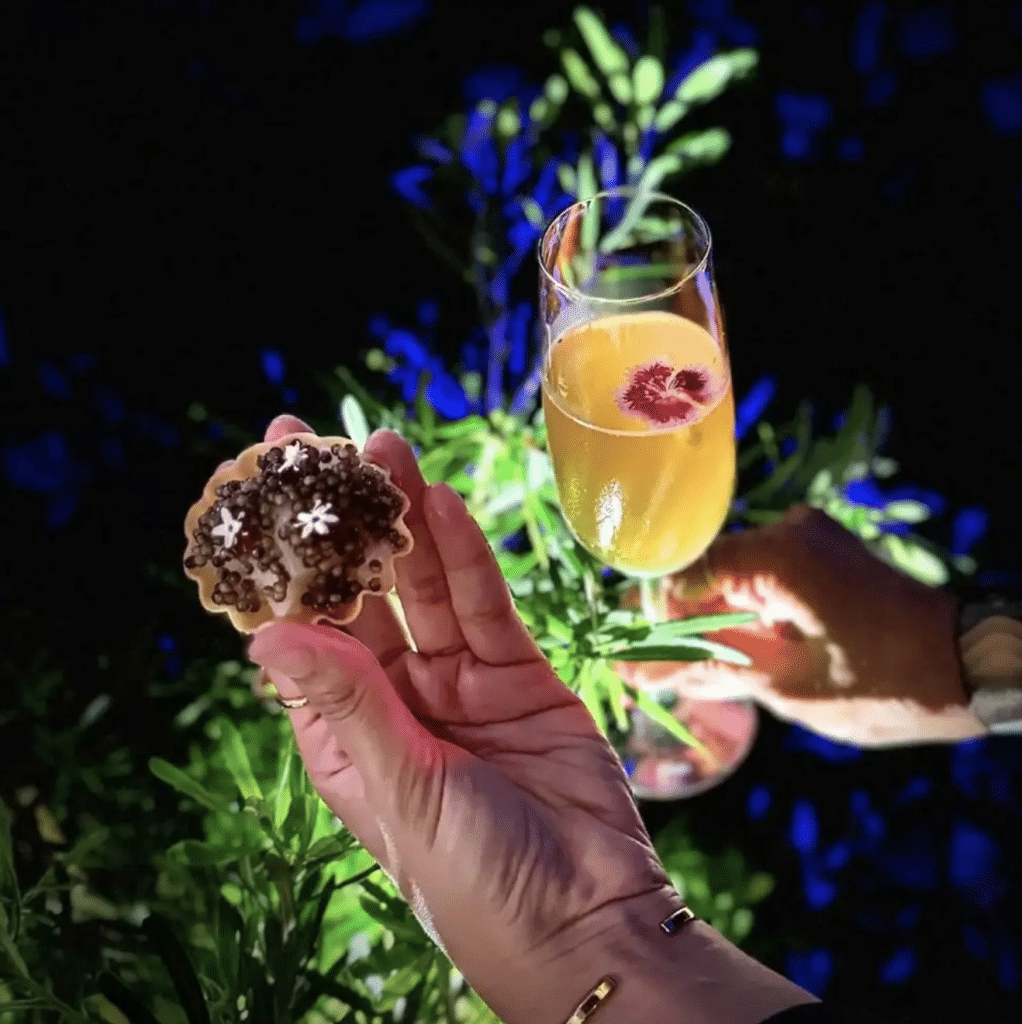
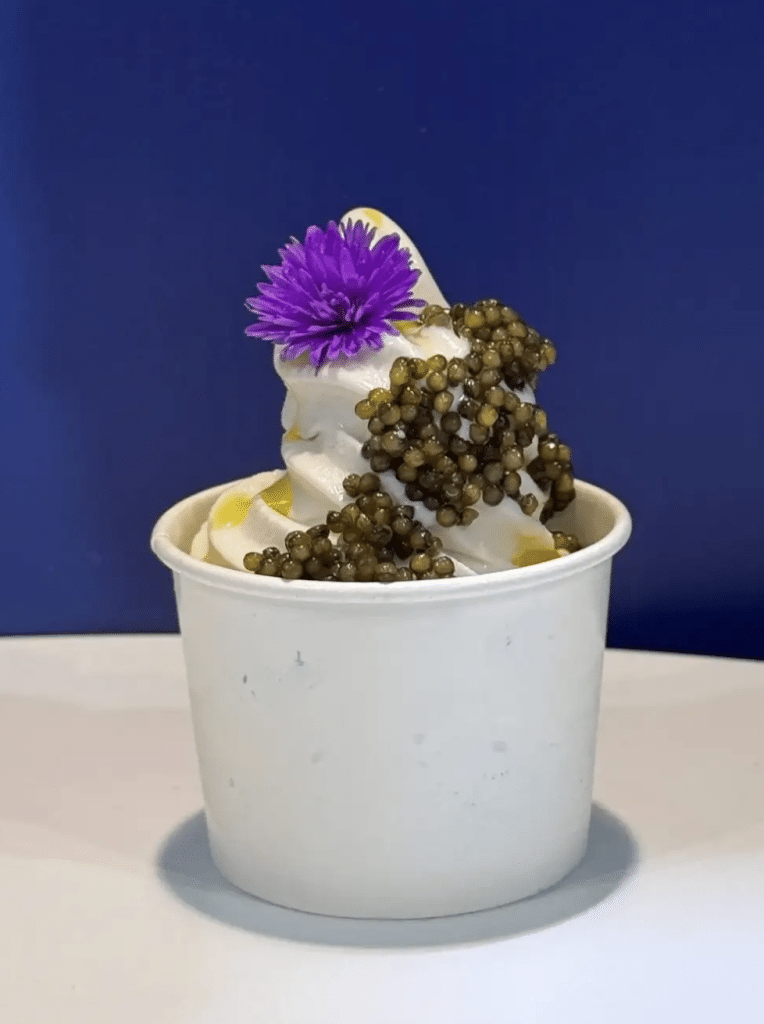
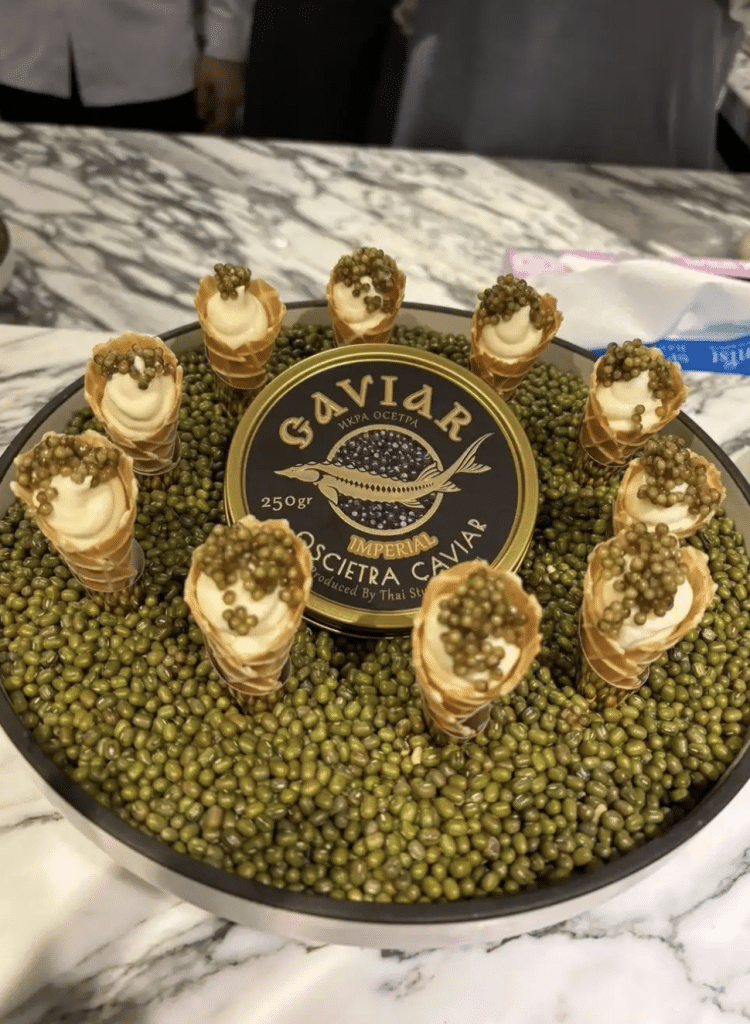
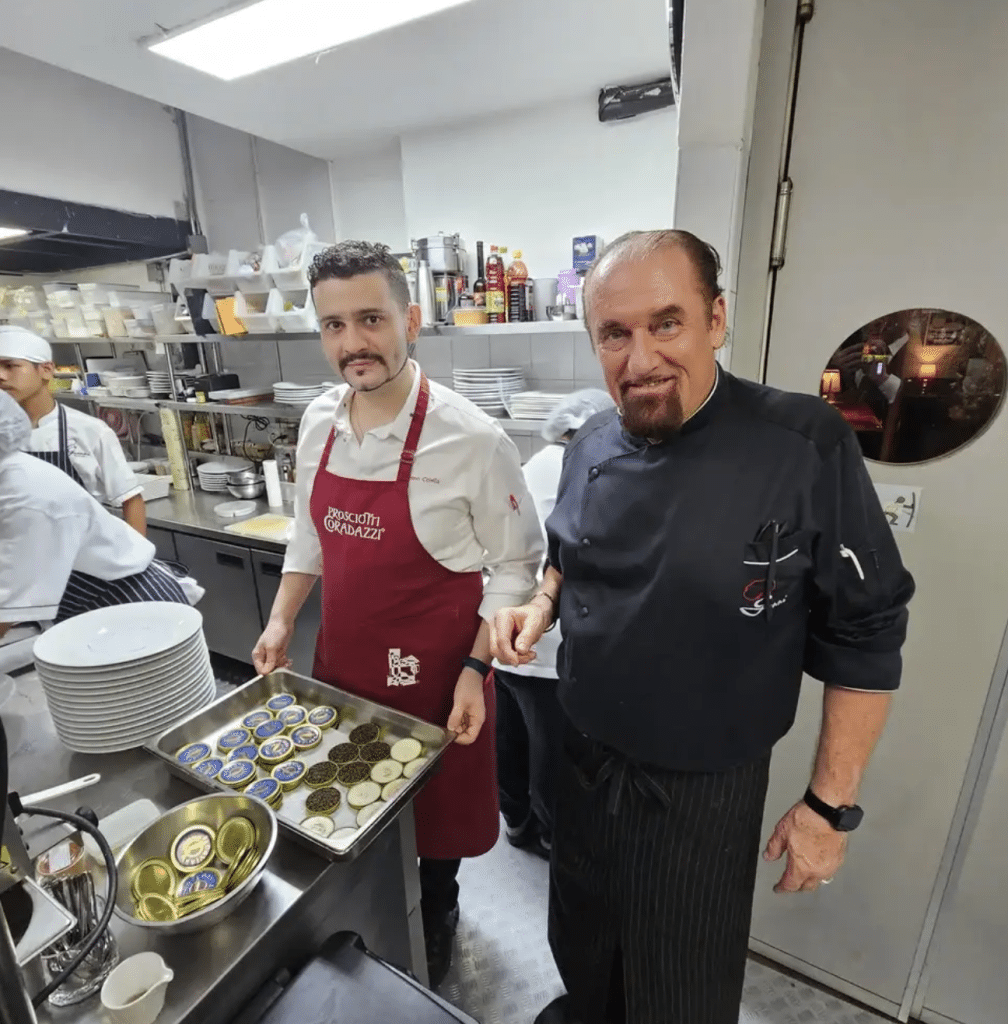
“Now we’re also looking at the American market, where many clients are Thai restaurants seeking authentic Thai caviar. It’s exciting to see our approach appreciated internationally.
We only completed the processing unit a few months ago and at the moment we are finalising all the necessary certifications: FDA, GMP, HACCP for the United States, and ISO 22000. We hope to have everything in place by the end of January, which will allow us to begin exporting our caviar to the US. This is our first major step.
At the same time we are working with smaller companies. In the US, we’ve already signed an agreement for them to purchase up to 100 kilograms per month, effectively taking everything we produce at a premium price. Meanwhile smaller buyers in Singapore and Indonesia have also shown interest, ordering smaller quantities of 5–10 kilograms.”
Last year Thai Sturgeon Farm supplied caviar for an event attended by the Prime Minister of Bhutan who was presenting the royal project Gelephu, the Mindfulness City. Each guest received a portion accompanied by a card detailing the product. This marked a significant milestone for the farm.
Lastly Koktail asked Tyutin how he enjoys his caviar.
“I think it should be eaten with a small spoon and champagne, and you can also mix it with other flavours. The champagne is a perfect accompaniment; when you take a spoon of caviar and sip it, letting the flavours mix in your mouth, the taste is enhanced.”
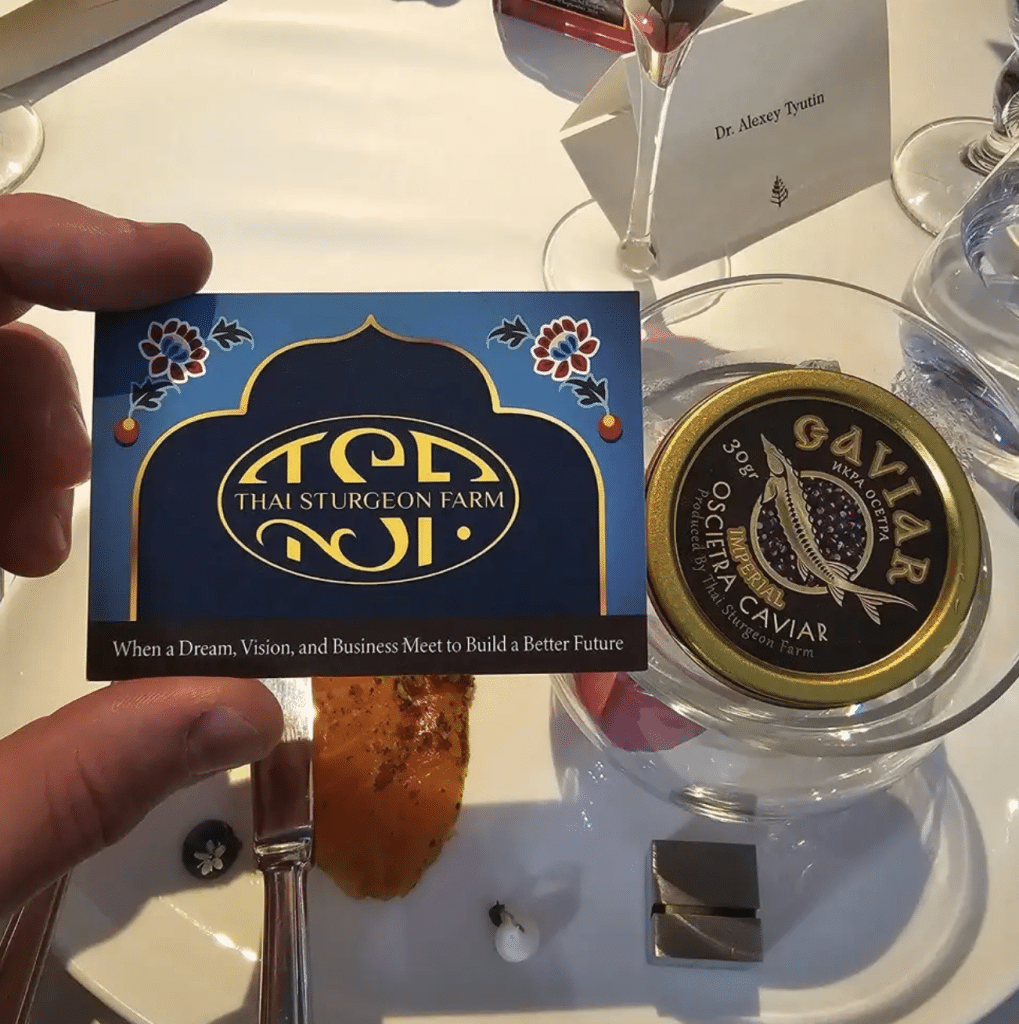
Inside River City Bangkok, a thousand worlds emerge through art, antiques, architecture, ...
In Emerald Fennell’s adaptation of Wuthering Heights, colour is not decorative. It ...
Wandering around the globe, try out the signature tastes of cultures across ...
These top 5 barber shops in Bangkok are where gentlemen can elevate ...
Sailorr and Molly Santana’s black grills fuse hip-hop swagger with homage to ...
From 26 March to 6 April, the Thai Book Fair is back, ...
Wee use cookies to deliver your best experience on our website. By using our website, you consent to our cookies in accordance with our cookies policy and privacy policy